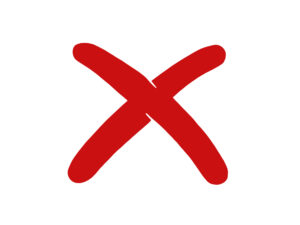How ethical and sustainable is Beko?
Beko is included in The Good Shopping Guide‘s dishwashers Ethical Ratings Table. Beko has yet to meet our ethical standards, but we hope that the brand will make changes to function as a more ethical organisation. Beko would have the opportunity to increase consumer trust by applying for Ethical Accreditation, which would include a more complete examination and suggestions for ethical development.
Are you interested in seeing how Beko rates against other brands within the Ethical Dishwashers sector? Visit the Dishwashers Ethical Ratings Table. From The Good Shopping Guide’s Ratings Tables, you can learn more about the criteria that our top-rated brands have fulfilled.
What does Beko do?
Beko was founded in 1989 and is now the leading home appliance brand in the UK. Beko produces refrigerators, laundry appliances, dishwashers, cookers and other small appliances that are now available in more than 130 countries. In 2020 Beko’s production plants became carbon neutral and the dishwasher brand also supports the charity Barnardo’s.
For which criteria does Beko perform poorly?
Beko received a low rating for Fossil Fuel involvement as the brand’s parent company is heavily involved with subsidiaries in natural gas, oil tankers and oil refining.
Past Criticisms of Beko’s ethical record
Beko faced criticism after serious defects in beko’s gas cookers were linked to the death of 18 people between 2008 and 2015. The cookers produced levels of carbon monoxide high enough to kill within minutes if the grill was used with the door shut.
In what areas does Beko score well for its ethics?
Beko receives a high score for its Environmental Report as the dishwasher brand’s sustainability page contains 2030 targets regarding energy consumption, water, electricity, waste and renewable energy investments. The sustainability page also details evidence of progress. Beko also receives a high score in our Nuclear Power, Animal Welfare and Political Donation categories.
How can Beko improve its ethical rating?
The Ethical rating of a brand is divided into three categories by The Good Shopping Guide: the Environment, People and Animals. Find out more about how we rate.
By updating its code of conduct to establish its own rules on child labour and working hours as well as removing relationships with some companies dealing with fossil fuels, Beko may raise its grade and satisfy our essential ethical requirements.
Are you curious about how obtaining Ethical Accreditation could be beneficial for your brand? Accredited brands can display The Good Shopping Guide mark, showcasing to consumers that it can be trusted as an ethical and sustainable brand. Visit our Ratings Tables to learn about which brands within the Ethical Dishwashers sector have been awarded with our ethical certification.
Would you like more information? Please get in touch or fill out a Free Initial Assessment form.
Ethical performance in category
GSG score
GSG category benchmark
Ethical Rating
Environment
-
Environmental Report
Good
-
Nuclear Power
Good
-
Fossil Fuels
Poor
Animal
-
Animal Welfare
Good
People
-
Armaments
Acceptable
-
Code of Conduct
Acceptable
-
Political Donations
Good
-
Human Rights
Acceptable
Other
-
Ethical Accreditation
Poor
-
Other Criticisms
Acceptable
= GSG Top Rating = GSG Middle Rating = GSG Bottom Rating
